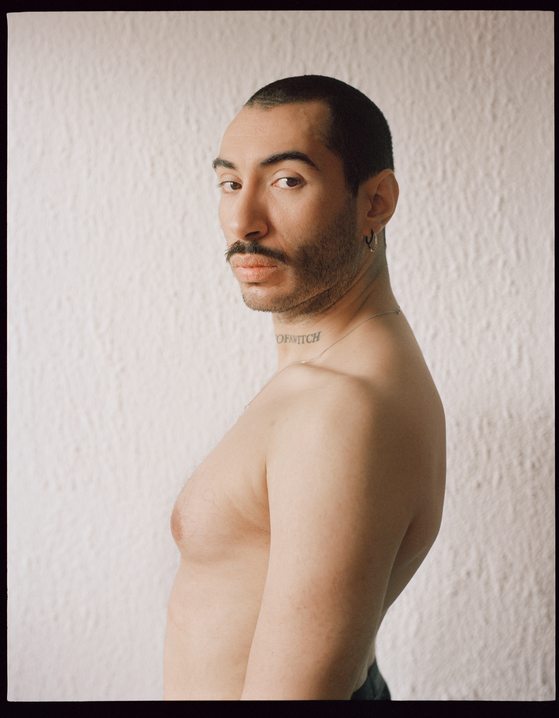Kacim / Camille Lenain, France
“It’s odd to say, but I would be reassured if I had to go to hell.
It’s not that I want to go to hell, but if someone comes tomorrow and says ‘I have proof that hell exists and you’re going.’ Oh well, frankly, I am not alone, because I know I am not guilty of the things one would accuse me for being queer and Muslim. There are plenty who will go to hell before me and we’ll go together.
What interests me is to understand other people’s gaze. What do we project onto others? How do others see me? How do I perceive others? How do I judge them? What are my prejudices, the prejudices of others on me?
My family perceived femininity in me, so they tried to contain it, to repress and expel it. Why do I dance? A boy doesn’t dance. He’s supposed to love football. I did not like football. When I was 6 or 7 years old, my uncles were giving me suspicious looks and comments, but I never had any direct attacks concerning to my homosexuality in my family. My mother knows, my aunts are aware. If you ask me, I will not hide it, but they are all still in denial.
What we mean by ‘family’ in our chauvinist patriarchal societies with a roman judeo-christian history, it is blood. But in fact, family is love. And that’s how it remains united and strong. In a biological family it is necessary to see each other because we have this blood link. But my family, they don’t know me, yet they allow themselves to judge my professional choice, about why I am not married, why I don’t have children. I no longer go to family gatherings because I can not stand the gaze and the judgment of my uncles either by their comments and above all by their looks and behavior. At some point, the question will arise why I don’t come anymore, and someone will have to tell the truth. This is what I say to my mother. Stop making excuses.
We know what it is, but it is not named. We have this habit in Muslim culture. That does not exist here. I won’t be accused of it at home because it does not exist here. Even if I put on the best Dalida dress, full of glitter and I was doing a pole dance in the living room, no one will tell me, ‘But my God, you’re gay’. They’ll say ‘No, you don’t do that, you’re a boy.’ But we do not put words on it.
The word Muslim translates to ‘one who submits’ but I do not see it as an oppressive submission but as a positive one. I submit myself to a noble idea that I find bright, good, because I find myself humbled by this idea.
I define myself first as feminist. When people define themselves, sometimes they have an order. If I had to choose, it would first be a feminist. Then it would be the queerness and being Muslim. These are two things that nurture each other. I see my relationship with God as a love/fear relationship. And if I fear something of God, it’s not his punishment, it is the fear of disappointing him. Isn’t that the fear we have with someone we love?”




